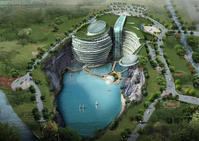A statement from an anti-Web2.0 piece by Michael Gorman, former head of the American Library Association."Human beings learn, essentially, in only two ways. They learn from experience—the oldest and earliest type of learning—and they learn from people who know more than they do." That can't go unchallenged, of course, so here by Tim Spalding of LibraryThing, "Libraries as Conversations": There is something attractive about this conception. Some people have experiences, and they pass it on, directly or through writing. Knowledge happens. We get it one way or the other.
But this has never been quite right. Learning and knowledge, at least important learning and knowledge, are a conversation. And, about conversations: Conversations work because, at their best, they know more and produce more than their members. They work because the knowledge is in the conversation. It happens in the very interplay of ideas—asserting, contesting, extending, simplifying and complexifying the dizzying whirl of fact and opinion, creative and synthetic, smart and dumb, right and wrong, from this angle and that. Literature works like this too, but can be even more meaningless without "conversational" context—genre, alusion and immitation and so forth. Mention of this is via David Weinberger.
Yes, of course conversation is part of it. Maybe we learn more and better that way than simply by individual experience and listening to people who're smarter than us. But it isn't just conversation, it is interaction. We get something out of interacting with others and with situations, and learning emerges from what happens. Incidentally, the next item in my blog aggregator, from Nancy White, had this item, quoted from a thread about knowledge sharing: In Bahasa Indonesia people say 'socialisasi' which means to make people aware of something through interaction - I've always wished there was an English equivalent!" It might be the traditional view that knowledge and learning is about transferring abstract facts. But conversation and interaction in general is likely to plug into something deeper and wider than mere facts. People don't learn just because you give them a lot of facts.
[ Knowledge | 2007-07-02 22:13 | | PermaLink ] More >
|
 Inhabitat:
Inhabitat: